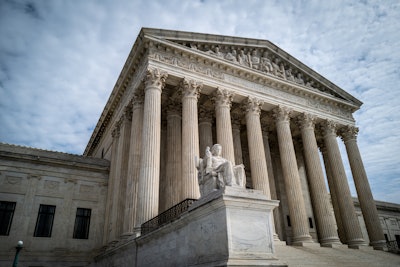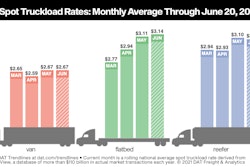
Some law firms are utilizing clickbait, the Reptile Theory and other misleading advertising strategies to persuade their audiences to hire an attorney out of fear and threat of danger. You know it when you see it.
“Call me, Jim Adler, the Texas Hammer. A car struck my client, and he fractured his femur and tibia. I fought and got $788,000 for his wreck…get what you deserve!” (“Jim Fight Fight Fight”).
Misleading legal advertisements like this rely on deceptive tactics in hopes the audience will remember what they saw. People will remember a hammer, but what does a hammer have to do with law and justice? Since the hammer does not correlate to this attorney’s services, this advertisement is misleading because it relies on an emotional appeal — the hammer — instead of logic.
A lack of policy and enforcement of existing regulations has allowed some attorneys to manipulate advertising in ways that usurps and trivializes the justice system with asymmetric information. This is contributing to the rise of nuclear verdicts (in excess of $10 million) in the trucking industry.
Freedom of speech?
Attorney advertisements were first legalized in 1977 in the U.S. Supreme Court case Bates v. the State Bar of Arizona. The Justices decided that legal advertisements were classified as commercial speech and protected by the First Amendment.
This landmark case gave law firms new leeway to release legal advertisements that arguably contain misleading information. To reverse course, each state Bar should adopt a policy similar to the ruling in the U.S. Supreme Court case Jacobellis v. Ohio for identifying misleading advertising: “you’ll know it when you see it.” This policy will need to then be enforced to protect the people and the judicial system.
The Florida Bar, for example, most recently updated its Handbook on Lawyer Solicitation and Advertising on August 19, 2020. In the handbook, Rule 4-7.15(a) titled “Manipulative Appeals,” now states that an advertisement is misleading if it is “designed to solicit legal employment by appealing to a prospective client’s emotions rather than to a rational evaluation of a lawyer’s suitability to represent the prospective client.”
With an updated policy, the Florida Supreme Court recently disciplined two lawyers from Ft. Lauderdale who utilized a pit bull as their logo and displayed a phone number “1-800 PIT BULL” in their legal advertisements. These advertisements specifically violated the rules because the pit bull had no correlation to the services provided by the law firm.
States are cracking down on clickbait from misleading legal advertisements. Their efforts led Google in June 2020 to update its advertising policies regarding misrepresentation. According to Google policy, clickbait is the “use [of] negative life events such as death, accidents, illness, arrests or bankruptcy to induce fear, guilt or other strong negative emotions to pressure the viewer to take immediate action.”
Stopping the Reptile strategy
The Reptile Theory is another misleading strategy employed by some law firms in their advertisements. This strategy activates the juror’s survival instincts to reach a decision based upon fear rather than logic. The reptile theory relies upon establishing a danger within the community — the defendant — and relays that the jurors have the power to protect their community and eliminate the danger.
This strategy can be seen in legal advertisements that use negative life events to influence the audience towards quickly taking action instead of rationally evaluating the lawyer’s credentials and their ability to provide legal guidance.
Misleading attorney advertising is partly to blame by conveying a message that people who are involved in truck-related accidents are entitled to a large payout, regardless of fault or merit, according to the American Trucking Research Institute.
Lottery-like legal advertisements have also conditioned society to think of the court system as trivial and meritless. This has created a carnival mentality and cultural atmosphere that desensitizes the audience to the search of truth in the judicial system.
State Bars should be setting more effective rules of regulation to monitor the content and presentation of law promotional materials and diligently enforce these regulations. When legal advertisements trigger the conscience and do not promote justice, the governing body should err on the side of disallowing it, thereby protecting the people.
Solely identifying misleading legal advertisements is not enough. State Bars also need to be petitioned and awareness created within communities to increase enforcement of regulations that will protect the people and create change.
Gwyn Taylor is an undergraduate student at Baylor University pursuing an economics degree.












